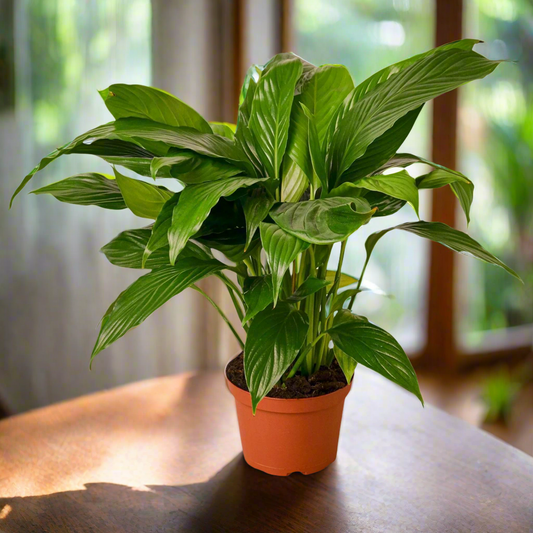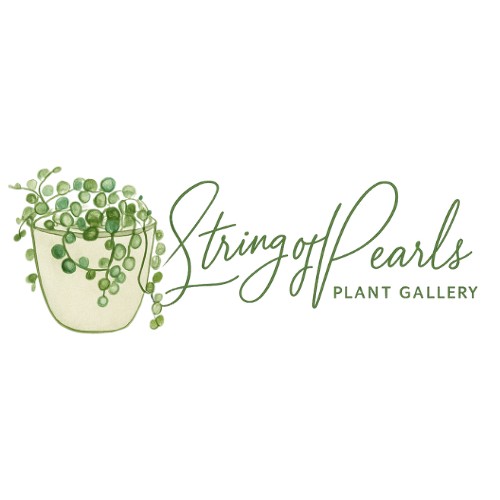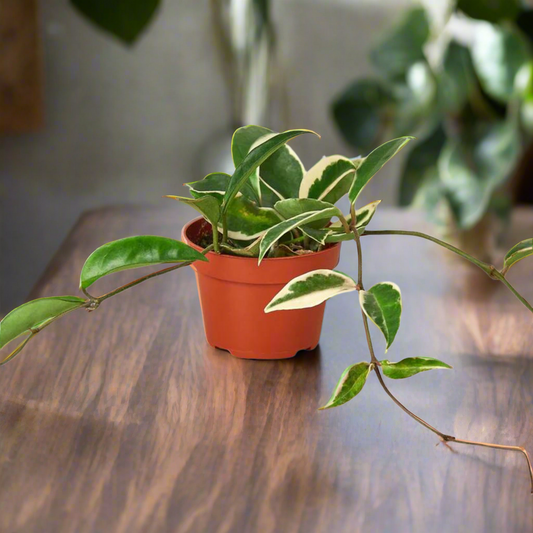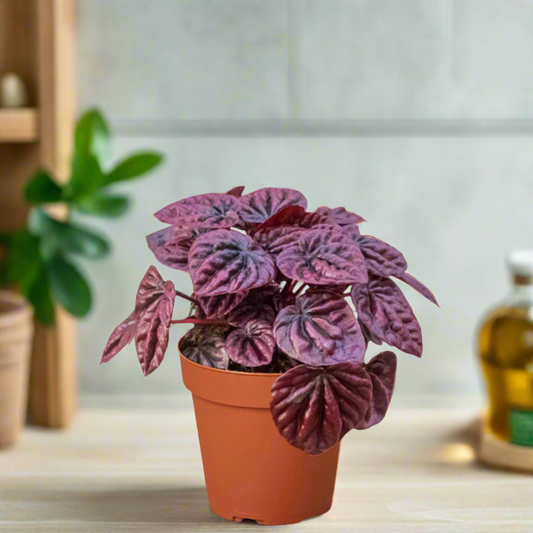Botanical Name:
Common Names:
- Succulent 'Elephant Bush'
- Elephant Bush
- Dwarf Jade Plant
- Porkbush
Description: Portulacaria afra, commonly known as the Succulent 'Elephant Bush', is a versatile and attractive succulent native to South Africa. This plant features small, round, fleshy leaves that are bright green and grow densely along its reddish-brown stems. It can be grown as a compact shrub or trained to grow as a small tree, making it an excellent choice for bonsai. The Elephant Bush is a popular choice for both indoor and outdoor gardening due to its low maintenance and drought tolerance. It typically grows up to 6-12 inches tall indoors, but can reach up to 10 feet in its natural habitat.
Care Instructions:
Light:
- Prefers bright, indirect light but can tolerate some direct sunlight. Avoid prolonged exposure to intense afternoon sun, which can cause leaf burn.
Water:
- Water sparingly, allowing the soil to dry out completely between waterings. Overwatering can lead to root rot. Reduce watering in the winter months when the plant's growth slows.
Humidity:
- Thrives in low to moderate humidity environments. The Elephant Bush is well-suited for typical indoor conditions and does not require additional humidity.
Temperature:
- Prefers temperatures between 60°F and 85°F (16°C - 29°C). Protect from cold drafts and temperatures below 50°F (10°C).
Soil:
- Use a well-draining cactus or succulent potting mix. A mix containing sand, perlite, and a small amount of organic matter works well to support healthy growth.
Fertilizer:
- Feed with a diluted, balanced, water-soluble fertilizer designed for succulents every 4-6 weeks during the growing season (spring and summer). Do not fertilize in the fall and winter.
Pruning:
- Prune regularly to maintain the desired shape and size. Remove any dead or damaged leaves and stems to encourage new growth and keep the plant healthy.
Styling Tips:
- Bonsai: Train the Elephant Bush as a bonsai to create a miniature tree with a unique and artistic appearance. Its small, rounded leaves and flexible stems make it an excellent candidate for bonsai.
- Hanging Basket: Place the Elephant Bush in a hanging basket to showcase its cascading stems. This creates a beautiful and dramatic effect, especially in rooms with high ceilings.
- Desk or Shelf Plant: Position the Elephant Bush on a desk, shelf, or windowsill where its compact and bushy form can be admired up close. Its small size makes it perfect for adding visual interest to various spaces.
- Grouping with Other Succulents: Combine with other succulents like Echeverias, Haworthias, and Aloes to create a diverse and visually appealing indoor or outdoor garden.
- Container Gardening: Grow the Elephant Bush in decorative pots or containers to add a touch of modern elegance to patios, balconies, and indoor spaces.
Portulacaria afra, with its distinctive, bright green leaves and relatively easy care requirements, is a fantastic addition to any plant collection. Its impressive appearance and adaptability make it a favorite among plant enthusiasts and interior designers looking to add a touch of exotic charm and vibrant greenery to their spaces.


 Sold out
Sold out





